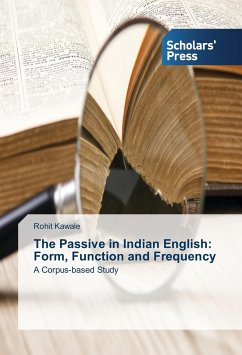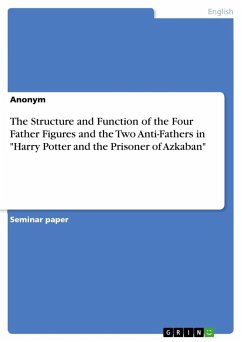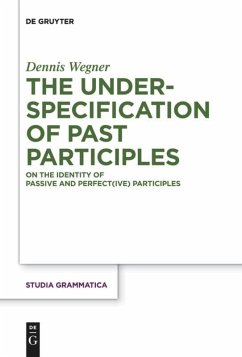
The Passive in Indian English: Form, Function and Frequency
A Corpus-based Study
Versandkostenfrei!
Versandfertig in 1-2 Wochen
52,99 €
inkl. MwSt.

PAYBACK Punkte
26 °P sammeln!
World Englishes have been studied extensively over the last few years. With the increasing acceptance of Indian English (IE) as a variety of English in recent times, a lot of research has been done on it. Much work has been done on the vocabulary and phonology of IE. Even if the grammar of IE has been analysed, more work needs to be done for arriving at a comprehensive grammar of IE. This book attempts to describe the use of the passive in IE in respect of form, frequency and functions. It can contribute to a description of the grammar of IE. The corpus-based analysis of the passive in IE give...
World Englishes have been studied extensively over the last few years. With the increasing acceptance of Indian English (IE) as a variety of English in recent times, a lot of research has been done on it. Much work has been done on the vocabulary and phonology of IE. Even if the grammar of IE has been analysed, more work needs to be done for arriving at a comprehensive grammar of IE. This book attempts to describe the use of the passive in IE in respect of form, frequency and functions. It can contribute to a description of the grammar of IE. The corpus-based analysis of the passive in IE given in this book also has some pedagogical implications, which can be important for teachers of English in India.












